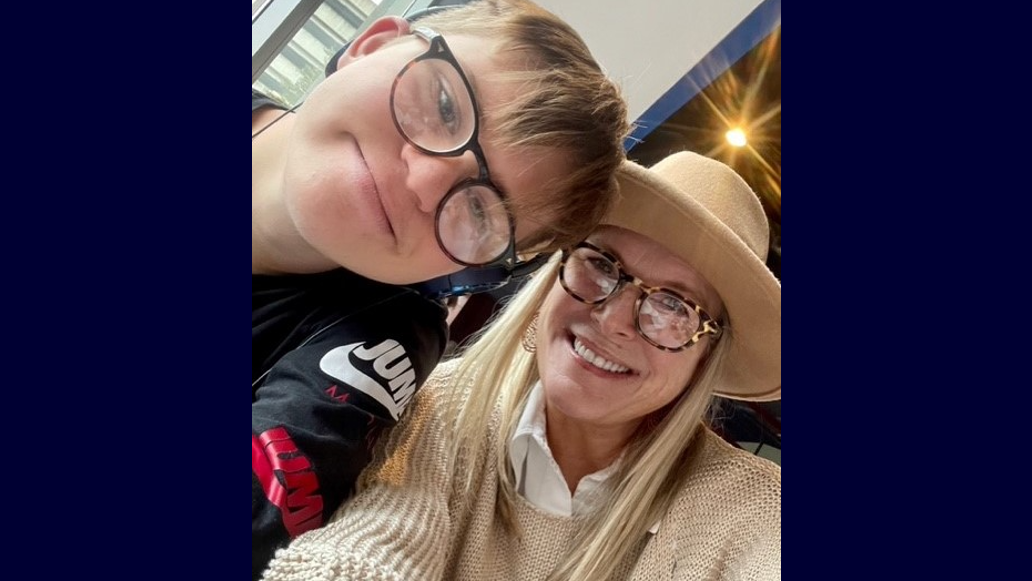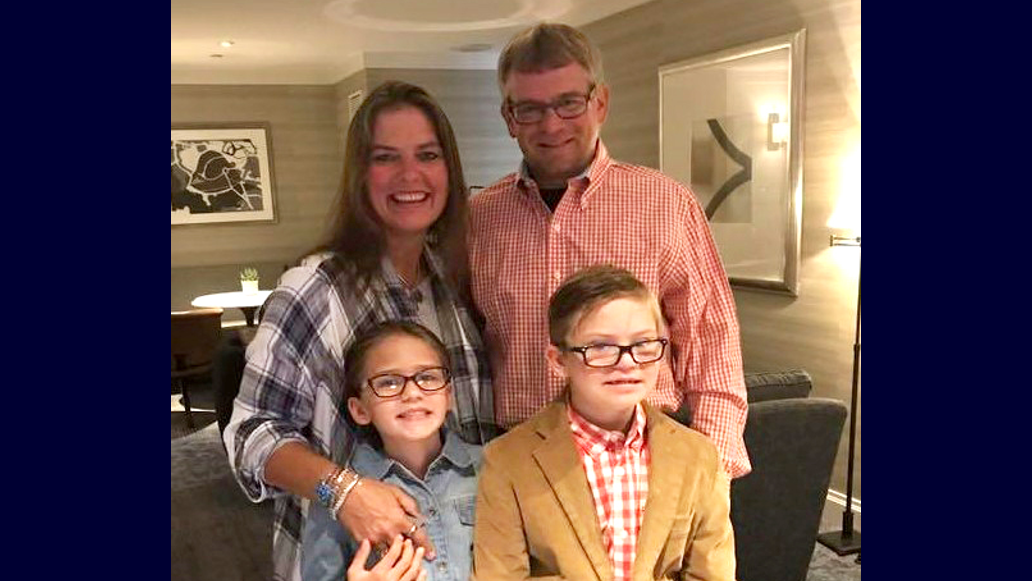Individual results may vary. Rx Only. View important safety information at inspiresleep.com/safety.
How Inspire Improved the Quality of Life for a Missouri Boy with Down Syndrome
Elliot Dougherty’s family believed he would live with the side effects of his obstructive sleep apnea (OSA) for the rest of his life.
Topics
Share
But everything changed when his mother, Kate, learned about clinical trials for Inspire® therapy pediatric use for Down syndrome patients.
“I thought Elliot had a good life before this,” said Kate, who is now the National Down Syndrome Congress (NDSC) president on the board of directors. “His ability to fully maximize his life was forever altered because of the hypoglossal nerve stimulation. It made life easier for Elliot, which is so much more than just curing sleep apnea.”

Dougherty, who has Down syndrome, was four-years old when he received an OSA diagnosis. He had surgery to remove his adenoids and tonsils, which helped for a while until Dougherty’s parents noticed he was having a tough time staying awake and keeping up with others his age just a few years later.
Another sleep study showed that Dougherty had severe OSA, and a Continuous Positive Airway Pressure (CPAP) machine was his first treatment option. His immune system rejected the CPAP mask, however, and he spent months taking antibiotics to recover.
The lack of restful sleep was causing other health problems, including a strain on Dougherty’s heart valves, which made his doctors think he would need open heart surgery.
Kate later attended a National Down syndrome Congress conference and learned about the clinical trials for Inspire.
Dougherty was approved to be a part of the trials in July 2019, and he received Inspire one month later.

“It was a night-and-day difference,” Kate said of the changes she saw once Elliot’s device was activated.
Dougherty is now able to keep up with his friends, and best of all, his doctors said there is a chance he won’t need open heart surgery for at least 15-20 years.
“We are talking about my son’s ability to make friends,” Kate said. “We’re talking about my son’s ability to have a girlfriend. We’re talking about my son’s ability to be able to focus enough to have a job or drive a car. We’re talking about my son’s ability to survive.”
Elliot’s story is one reason the FDA approved Inspire® therapy in March 2023 for children aged 13-18 with Down syndrome who are unable to use CPAP and who stop breathing between 10 and 50 times per hour while sleeping.
Share